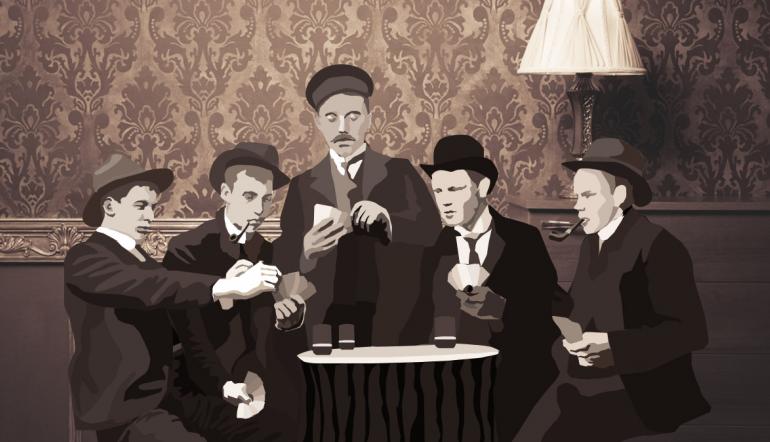Poker, a game of skill, strategy, and chance, has captivated players worldwide for centuries.
With its origins shrouded in mystery, poker has evolved from humble beginnings into a global phenomenon.
In this article, we’ll embark on a historical journey, exploring the origins, milestones, and transformations
that have shaped the game we know today as poker.
1. Origins of Poker
The exact origins of poker remain elusive, but it is believed to have emerged in the early 19th century
in the United States. Some theories suggest that poker evolved from various card games brought to America
by French settlers, while others point to a Persian game called “As Nas” as a precursor. The game gradually
gained popularity and began to be played on riverboats, in saloons, and at social gatherings.
2. The Wild West and the Spread of Poker
During the 19th century, poker became intertwined with the spirit of the Wild West. It was a favorite pastime
among cowboys, outlaws, and gamblers who frequented saloons and mining camps. The game’s popularity grew as
it spread across the frontier, driven by the gold rush and the expansion of railroad networks. Poker became
synonymous with the American frontier and the spirit of risk-taking.
3. Evolution of Poker Variants
As poker spread throughout the United States and beyond, various regional variations emerged. Stud poker,
draw poker, and community card poker gained popularity, each with its own set of rules and strategies. The
World Series of Poker (WSOP), established in 1970, played a significant role in promoting Texas Hold’em,
which eventually became the most widely recognized and played variant.
4. Poker in the Modern Era
The advent of the internet in the late 20th century brought about a revolution in the world of poker. Online
poker platforms allowed players from around the globe to compete against each other, fueling a poker boom.
The early 2000s witnessed an unprecedented rise in popularity, driven by televised poker tournaments, such
as the WSOP and the World Poker Tour (WPT), which showcased the game’s allure to a broader audience.
5. Poker as a Mind Sport
In recent years, poker has increasingly been recognized as a mind sport, emphasizing the strategic and
intellectual aspects of the game. International tournaments, such as the European Poker Tour (EPT) and the
Asian Poker Tour (APT), attract top players and offer substantial prize pools. Poker’s inclusion in the Mind
Sports Olympiad and the International Mind Sports Association further solidifies its status as a competitive
mind sport.
6. Poker’s Influence on Pop Culture
Beyond its competitive aspect, poker has deeply ingrained itself in popular culture. It has been featured
in numerous books, movies, and television shows, often portraying the game’s tension, psychology, and high-stakes
drama. Notable films like “Rounders” and James Bond’s affinity for high-stakes poker in “Casino Royale” have
brought the game to the forefront of entertainment.
From its humble beginnings to its current status as a global phenomenon, the history of poker is rich with
tales of risk, strategy, and triumph. As it continues to evolve, poker remains a game that transcends borders
and brings people together in the pursuit of excitement and challenge. Whether you’re a seasoned player or a
newcomer, understanding the roots of poker can enhance your appreciation for the game’s enduring appeal.



